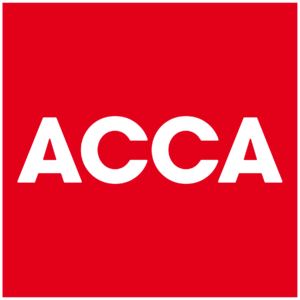Latest Industry News
-
Online platforms should have a ‘news quality obligation’ to improve trust in news they host, overseen by a regulator
-
Government should explore direct funding for local news and new tax reliefs to support public interest journalism
-
A new Institute for Public Interest News should focus on the future of local and regional press and oversee a new innovation fund
Read the the final report.
The independent review, undertaken by Dame Frances Cairncross, was tasked by the Prime Minister in 2018 with investigating the sustainability of the production and distribution of high-quality journalism.
It comes as significant changes to technology and consumer behaviour are posing problems for high-quality journalism, both in the UK and globally.
Dame Frances Cairncross said:
The proposals I have put forward have the potential to improve the outlook for high quality journalism. They are designed to encourage new models to emerge, with the help of innovation not just in technology but in business systems and journalistic techniques.
DCMS Secretary of State Jeremy Wright said:
A healthy democracy needs high quality journalism to thrive and this report sets out the challenges to putting our news media on a stronger and more sustainable footing, in the face of changing technology and rising disinformation. There are some things we can take action on immediately while others will need further careful consideration with stakeholders on the best way forward.
Dame Frances was advised by a panel of experts from the local and national press, digital and physical publishers and advertising. Her recommendations include measures to tackle the uneven balance of power between news publishers and the online platforms that distribute their content, and to address the growing risks to the future provision of public-interest news.
It also concludes that intervention may be needed to improve people’s ability to assess the quality of online news, and to measure their engagement with public interest news. The key recommendations are:
- New codes of conduct to rebalance the relationship between publishers and online platforms;
- The CMA to investigate the online advertising market to ensure fair competition;
- Online platforms’ efforts to improve their users’ news experience should be placed under regulatory supervision;
- Ofcom should explore the market impact of BBC News, and whether its inappropriately steps into areas better served by commercial news providers;
- The BBC should do more to help local publishers and think further about how its news provision can act as a complement to commercial news;
- A new independent Institute should be created to ensure the future provision of public interest news;
- A new Innovation Fund should be launched, aiming to improve the supply of public interest news;
- New forms of tax reliefs to encourage payments for online news content and support local and investigative journalism;
- Expanding financial support for local news by extending the BBC’s Local Democracy Reporting Service;
- Developing a media literacy strategy alongside Ofcom, industry and stakeholders.
The Government will now consider all of the recommendations in more detail. To inform this, the Culture Secretary will write immediately to the Competition and Markets Authority, Ofcom and the Chair of the Charity Commission to open discussions about how best to take forward the recommendations which fall within their remits. The Government will respond fully to the report later this year.
ENDS
Notes to Editors
The review has looked at the overall state of the news media market, the threats to the financial sustainability of publishers, the impact of search engines and social media platforms, and the role of digital advertising. Some of the report’s key findings include:
-
Half of UK adults worry about “fake news” or disinformation. A quarter do not know how to verify sources of information they find online. So users need to get the right skills to spot fake news, and platforms must identify and quickly remove the deliberate spread of misinformation on their services.
-
Although news can be found on television and radio, written journalism (whether in print or online) originates the largest quantity of original journalism and is most at risk – particularly investigative journalism and democracy reporting.
A Mediatique report Overview of recent market dynamics in the UK press, April 2018 commissioned by DCMS as the part of the Cairncross Review found:
- Print advertising revenues have dropped by more than two-thirds in the ten years to 2017;
- Print circulation of national papers fell from 11.5 million daily copies in 2008 to 5.8 million in 2018 and for local papers from 63.4 million weekly in 2007 to 31.4 million weekly in 2017;
- Sales of both national and local printed papers fell by roughly half between 2007 and 2017, and are still declining;
- The number of full-time frontline journalists in the UK has dropped from an estimated 23,000 in 2007, to just 17,000 today, and the numbers are still declining.
A report Online Advertising in the UK by Plum Consulting, commissioned by DCMS as the part of the Cairncross Review (and available as an annex to the Review) found:
- UK internet advertising expenditure increased from £3.5 billion in 2008 to £11.5 billion in 2017, a compound annual growth rate of 14%.
- Publishers rely on display advertising for their revenue online – which in the last decade has transformed into a complex, automated system known as programmatic advertising.
- An estimated average of £0.62 of every £1 spent on programmatic advertising goes to the publisher – though this can range from £0.43 to £0.72.
*Collectively, Facebook and Google were estimated to have accounted for over half (54%) of all UK online advertising revenues in 2017. - The major online platforms collect multiple first-party datasets from large numbers of logged-in users. They generally, they do not share data with third-parties, including publishers.
Dame Frances Cairncross is a former economic journalist, author and academic administrator. She is currently Chair of the Court of Heriot-Watt University and a Trustee at the Natural History Museum. Dame Frances was Rector of Exeter College, Oxford University; a senior editor on The Economist; and principal economic columnist for the Guardian. In 2014 she was made a Dame of the British Empire for services to education. She is the author of a number of books, including “The Death of Distance: How the Communications Revolution is Changing our Lives” and “Costing the Earth: The Challenge for Governments, the Opportunities for Business”. Dame Frances is married to financial journalist Hamish McRae.
Contains public sector information licensed under the Open Government Licence v3.0. This article first appeared on the Gov.uk website. View the original article HERE.
For tailored advice on how to best manage your personal and business finances, get in touch with us today and find out about how CBHC can help you do more with your money.








